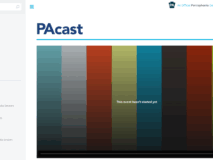
If you’re trying to clear your criminal record in Pennsylvania, you’ve probably heard about clean slate, pardons and expungements. But behind all those terms is a big law that governs how your record is handled: the Criminal History Record Information Act, or CHRIA (pronounced KREE-uh).
It sounds complicated and is, but don’t worry, we’re going to break it down in a way that makes sense!
So, What Is CHRIA?
CHRIA is the law that controls who can see your criminal record, how it’s stored, and who can fix mistakes. Our services help you understand how parts of your record can be sealed or deleted (a.k.a. expunged).
Think of it like the operating manual for your record, it tells the police, courts, and background check companies what they’re allowed to do with your information.
Why This Matters for Job Seekers, Parents, and Everyday People
Let’s be real, everyone knows how having a record (even from decades ago) can still get in the way of your future plans. It can mess with job applications, housing, school events, and even professional licenses.
The good news is, CHRIA has built-in protections to help people move on:
- You don’t have to tell employers about sealed or expunged cases
- Employers are protected if they hire you after your record is cleared
- State licensing boards are required to focus on job relevance, not just your past.
4 Key Ways to Clear or Seal Your Record Under CHRIA
Expungement
This is the big one because once granted it is a total deletion of a case from your criminal history. Once something is expunged, it’s like it never existed.
When can you get one?
- You were found not guilty or your case was dismissed
- You completed ARD and it wasn’t a sex offense involving a child
- You’re over 70 and arrest-free for 10+ years
- You’ve been deceased for 3+ years
- You got a pardon from the Governor
Pardon
A pardon is an official forgiveness from the Governor of Pennsylvania. It doesn’t just help you feel better about your past; it gives you the green light to expunge convictions that would otherwise stay on your record forever.
Here’s how it works:
- You apply for a pardon through the Pennsylvania Board of Pardons
- If the Governor grants it, your conviction is automatically eligible for expungement based on a section in the Clean Slate 3.0 Law.
- Once expunged, it’s fully removed from your criminal history, not just sealed.
What makes pardons different?
While Clean Slate and limited access are forms of sealing (meaning the record still exists but is hidden from public view), a pardon leads to true deletion of the case. That means the charge is erased from your background checks (public and private) and you can legally say it never happened.
Why it matters: A pardon is the only way to expunge most felony and misdemeanor convictions in Pennsylvania.
Heads up: Pardons take time (often 4+ years) so it’s important to get started early if this is the route you need.
Clean Slate Limited Access (Sealing)
This is an automated process (that may or may not work every time) where your record is hidden from the public but still visible to law enforcement, some landlords, employers, licensing boards, and a few other specific agencies.
You might qualify if:
- You’ve been conviction-free for 7 or 10 years, depending on the offense
- Summary offenses after 5 years
- Some misdemeanors after 7 years
- You’ve paid all restitution and court fees
- New in 2023: Certain drug-related felonies after 10 years
Important: Clean Slate doesn’t delete your record; it just hides it from public view.
Common Questions We Hear
“If I expunge my record, is it gone from the internet?”
Not necessarily. Press releases and local crime trackers can still show up online. You may be able to go through a separate process by providing proof of expungement directly with the websites.
“What if I see something wrong on my record?”
You can challenge it! Agencies have 15 days to fix errors once notified. That’s part of CHRIA too.
“Will employers still see my sealed record?”
Possibly! While sealed records should not appear on public background checks, the employer, landlord or other agency may have access to state police records where that information will be found.
A Quick Note on Juvenile Records
Many juvenile records (even some felonies) can be expunged after as long as the person stays out of trouble. Not all juvenile offenses qualify but many more do than before.
Let’s Talk Planning: What You Can Do Next
At Record Eraser | PA Pardon Service we are always keeping up with all the updates to laws including CHRIA so you don’t have to. Here’s what we offer:
- Free record reviews to see what’s public and what’s not
- Guidance on Clean Slate, expungement, and Pennsylvania pardons
- Help tracking down old records
- Advice on what to tell employers or licensing boards
- And yes, Attorney Walmer himself helps personally review every case we take!
Final Takeaway: CHRIA Is on Your Side (If You Know How to Use It!)
Clearing your record isn’t about hiding who you are, it’s about giving yourself a fair shot at the life you want. Especially after being put through a system who makes, it difficult to move on from past mistakes.
Whether you’re applying for a better job, trying to get a license, or just ready to move on from your past, understanding your rights under CHRIA is a big first step.
And we’re here to walk that path with you!
Erase My Record
"*" indicates required fields




